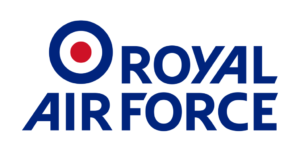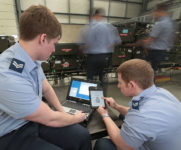Forensic Computer Analyst Careers Guide - Cybersecurity Careers
When it comes to online scams, hacking and even digital terrorism, the world NEEDS digital crimefighters like you.
How much money can you earn as a forensic computer analyst?
These LMI Job Trends give you a sneak peek of how much you could earn starting out for this career, and how much your salary could grow with experience.
Average salary for digital forensics jobs
Recent labour market information says you can earn between £20,000 and £60,000 a year as a forensic computer analyst, which is a specialised form of IT/digital analyst.
Your starting salary can vary because of factors like level of experience, training, or location. Your salary as a forensic computer analyst will increase over time as you build skills, knowledge and experience.
Digital Career FAQs & Insights
Is there something you’d like to know about digital careers? Maybe we can help!
Skills you need to become a forensic computer analyst
Useful skills to put in your CV:
- Self-belief skills – it takes trial and error to catch criminals, because cyber crime never sleeps. So you need to have the confidence to persevere and keep on top of the latest trends.
- Good communication skills and teamworking skills – you’ll be working as part of a team, keeping everyone in the loop about what you’re doing. Sometimes you may have to keep a positive attitude as you’re faced with horrendous crimes or working hard to catch a criminal before they strike again.
- Good problem solving skills – as a forensic computer analyst it’s your job to research data evidence, and you could face all kinds of problems, from locating the source of a hack to getting evidence from a computer that someone has tried to destroy! You need a creative approach as well as a logical one.
- Good organisation skills – You need a logical approach to what you do, and your work will consist of lots of data analysis and breaking big problems down into manageable chunks. Good organisation will help with this.
Top Skills-boosting Tip
It’s good to work on your Self-management skills, which is another way of saying being organised.
You’ll often receive training from your employer, but it’s up to you to have a keen interest in all things digital and have the passion to top up your anaylsis and tech skills.
How Do You Get These Skills?
Vocational qualifications and work experience will help you build these skills over time.
What Qualifications & Training Do You Need For Forensic Analysis Careers?
School, college and training
There are three typical ways into this career – do a university degree, apply for an apprenticeship, or get on-the-job training while you work.
Whichever route you take, you’ll normally need five GCSEs at grade 4 (C) or above, or their equivalents. Your GCSEs will need to include English and maths. You may also find it useful to include a science or technology subject.
If you want to do a degree or higher apprenticeship, you will also need two or three A-levels or their equivalent.
Some course providers or employers will let you use equivalent level qualifications.
T-Levels
T-Levels are a choice for learners after GCSEs alongside apprenticeships and A-levels.
You can do Digital T Levels in Digital Support Services and Digital Business Services. Digital T levels are a high-quality, work-focused alternative to A Levels for young people once they’ve completed their GCSEs. Launched in September 2021, they offer new routes to employment or further learning for young people looking to begin a career in the digital sector.
BTECs
As an alternative to GCSEs and A-Levels, you can do BTECs from the age of 16. The BTEC Tech Award in Digital Information Technology gives you the specialist knowledge and technical skills to progress into, for example, an apprenticeship or employment. The Pearson BTEC Level 1/Level 2 Tech Award in Digital Information Technology is ideal for you if you are a pre-16 student working at level 1 or level 2 and would like to find out more about the IT industry. This course offers a practical introduction to life and work in the digital sector. The qualification is the same size and level as a GCSE.
Apprenticeships
An apprenticeship is a scheme where you train while earning a starting salary.
With an apprenticeship (or advanced apprenticeship) you’ll have a paid job with an employer that includes structured training and learning. This training leads to an official qualification that’s recognised by employers as an industry standard.
There are lots of cyber security apprenticeships available in the UK. For example, you could apply for:
- Cyber security apprenticeships (including some at degree level)
- Infrastructure technician advanced apprenticeship (one year)
- Data analysis higher apprenticeship (two years)
You can seek out cyber security apprenticeships with organisations like Find an Apprenticeship.
University degrees and graduates
If you are planning to go to university, the following foundation degree and degree subjects may be useful to a cybersecurity career:
- Computer forensics degree
- Cybersecurity degree
- Computer science degree
- Criminal justice degree
UCAS has more information on degree courses and entry requirements.
Some courses include a year in industry – or you could organise your own work placement in a company. You might also be able to join a company’s graduate trainee scheme if you have a degree in a relevant subject.
Career Progression
With time and experience, you can progress from an apprenticeship or junior role into a more specialised analyst or security role. For example, you could go on to become a senior analyst leading a team, a head of security or a security consultant who is self-employed and advises all kinds of top-level clients.
You can move into forensic computer analysist from the following early career roles, with further training:
What Work Experience Do You Need For Forensic Computer Analyst Jobs?
Work Experience Tips
It can help you decide if this is the right career for you if you have previously done work experience in a digital. Work experience in a security or legal environment can also help you build useful skills.
Any work experience where you have demonstrated your cybersecurity skills or digital/design skills can help your application.
Examples of relevant work experience include:
- Work shadowing (even if it’s just for a day)
- Work placements in a company
- Work experience placements on a college or university course
Volunteering Tips
Having a keen interest in digital software and how computers do things is important in this career, because you’ll need to stay up with the latest tech trends to keep up with hackers and other cyber criminals.
Extra-curricular activities could involve:
- Learning about computer network administration (like firewalls)
- Setting up and looking after operating systems like Windows, MacOS and Linux
- Building up your programming and web development skills (e.g. hosting your own WordPress blog could help you see if you’ve got a taste for exploring what goes on behind the websites that users see!)
If you’re still at school, one way to expand a range of digital skills is to join a school STEM club. They might have hackathons!
Volunteering tipsWhat Does A Forensic Computer Analyst Do?
Where could you work?
- Police force
- Government
- Security services
- Bank
- IT firm specialising in computer security
What could you work on?
- Industrial fraud
- Online scams
- Hacking
- Political or business-related espionage (spying)
- Terrorist communications
- Possession of illegal pornography
Example daily job responsibilities
- Securing IT systems or hardware so criminals can’t tamper with them
- Finding, recovering and copying data from disks that have been hidden, encrypted or damaged
- Analysing mobile phone communications to trace devices
- Following digital data trails to link people or groups
- Documenting everything you do
- Cleaning digital images to reveal the identity of a person or place
- Presenting your technical findings to managers, the police or clients
- Giving evidence in court as an expert technical witness.
How To Find Forensic Computer Analyst Jobs: Next Steps
To find jobs for young people in this role, search on jobs boards for early career roles and opportunities with these words in the title:
- Cyber security apprenticeship
- Junior cyber security analyst
- Junior security content engineer
- Junior cyber intel analyst
- Junior threat researcher
- Junior Incident Response Analyst
- Junior forensic computer analyst
These websites might be able to help you find digital experience or a role that’s a good fit for you:
- Find an Apprenticeship
- Institute for the Management of Information Systems (IMIS)
- British Computer Society – Chartered Institute for IT (BCS)
- Tech Partnership
- Code First: Girls
You can also take a look at our database of local opportunities to see if there are any relevant jobs, work placements, or careers events and workshops to help you get started.
Get Into Digital Careers With Youth-Friendly Employers
These employers and organisations are here to help. They care about your potential and desire to learn, not just your qualifications and experience. They may be able to offer traineeships, apprenticeships, graduate schemes, first jobs, careers advice, wellbeing support and much more.
Digital Career Tips & Opportunities
Digital Career Guides
View job descriptions with average UK salary, useful qualifications and a variety of routes into this career.
See All Our Youth-Friendly Employers
London tech careers are in YOUR reach.
Salary? Jobs? Training? You got it. No experience? No problem. You've got the power. We'll give you the support!
London Digital Jobs and Skills Hub





































































YES! I Want More Free Careers Help...
So what are you waiting for? Grab your future.










































